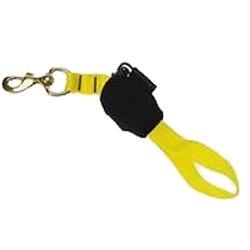DevonDiver
N/A
What about female opinions..? :blinking:
Are they available in pink?
Will there be a special edition Swarovski crystal version?
Can I download custom alarm sounds, for instance Hannah Montana theme?
Welcome to ScubaBoard, the world's largest scuba diving community. Registration is not required to read the forums, but we encourage you to join. Joining has its benefits and enables you to participate in the discussions.
Benefits of registering include
What about female opinions..? :blinking:

 Every now and again a device gets proposed that I really think is not "fit for purpose" for scuba diving. The buddy finder, in my "skills biased" opinion, really shouldn't be allowed to make it to market. It's a bad idea and unfortunately, the divers who are most likely to buy one are the ones most likely to have an accident despite (or maybe because) of relying on one...
Every now and again a device gets proposed that I really think is not "fit for purpose" for scuba diving. The buddy finder, in my "skills biased" opinion, really shouldn't be allowed to make it to market. It's a bad idea and unfortunately, the divers who are most likely to buy one are the ones most likely to have an accident despite (or maybe because) of relying on one... IIt's a bad idea and unfortunately, the divers who are most likely to buy one are the ones most likely to have an accident despite (or maybe because) of relying on one...
Regardless of the price ... just concerning the warning function: If there is a need / market for a buddy-line, in your opinions, why shouldn't there be one for a Buddy-Watcher?
Why does a dive computer calculate what we should be able to calculate with a dive table?
Why are there parking-aid devices, avalanche victim search devices, GPS navigation systems and all that stuff if we should be trained to manage everything on our own...?
Regardless of the price ... just concerning the warning function: If there is a need / market for a buddy-line, in your opinions, why shouldn't there be one for a Buddy-Watcher?
Someone also came up with this, for example: "in order to avoid activating the vibration (may be annoying when it happens frequently), you learn to keep an eye on your buddy and stay relatively close to him..?"
You're giving examples of devices that are fit for purpose in their context. Parking sensors, for example, are intended to "avoid" you running into the car behind you when parking. A proper analogy for the buddy-watcher would be a beeper that went off only AFTER you hit the car behind you. See the difference?Why does a dive computer calculate what we should be able to calculate with a dive table? Why are there parking-aid devices, avalanche victim search devices, GPS navigation systems and all that stuff if we should be trained to manage everything on our own...?
...just to whip up controversy

